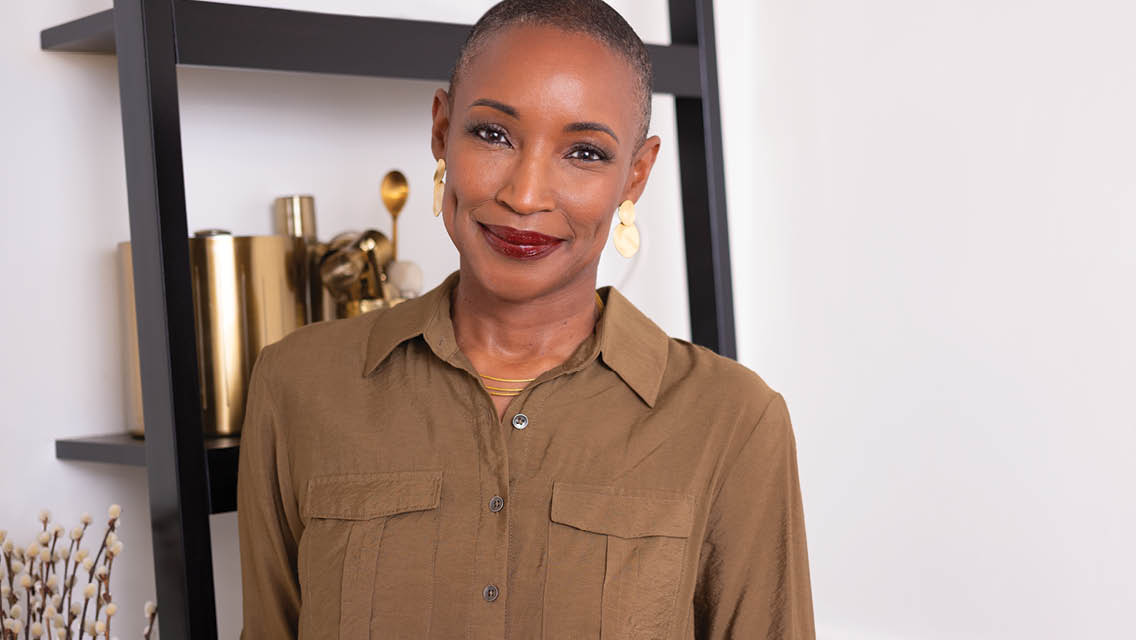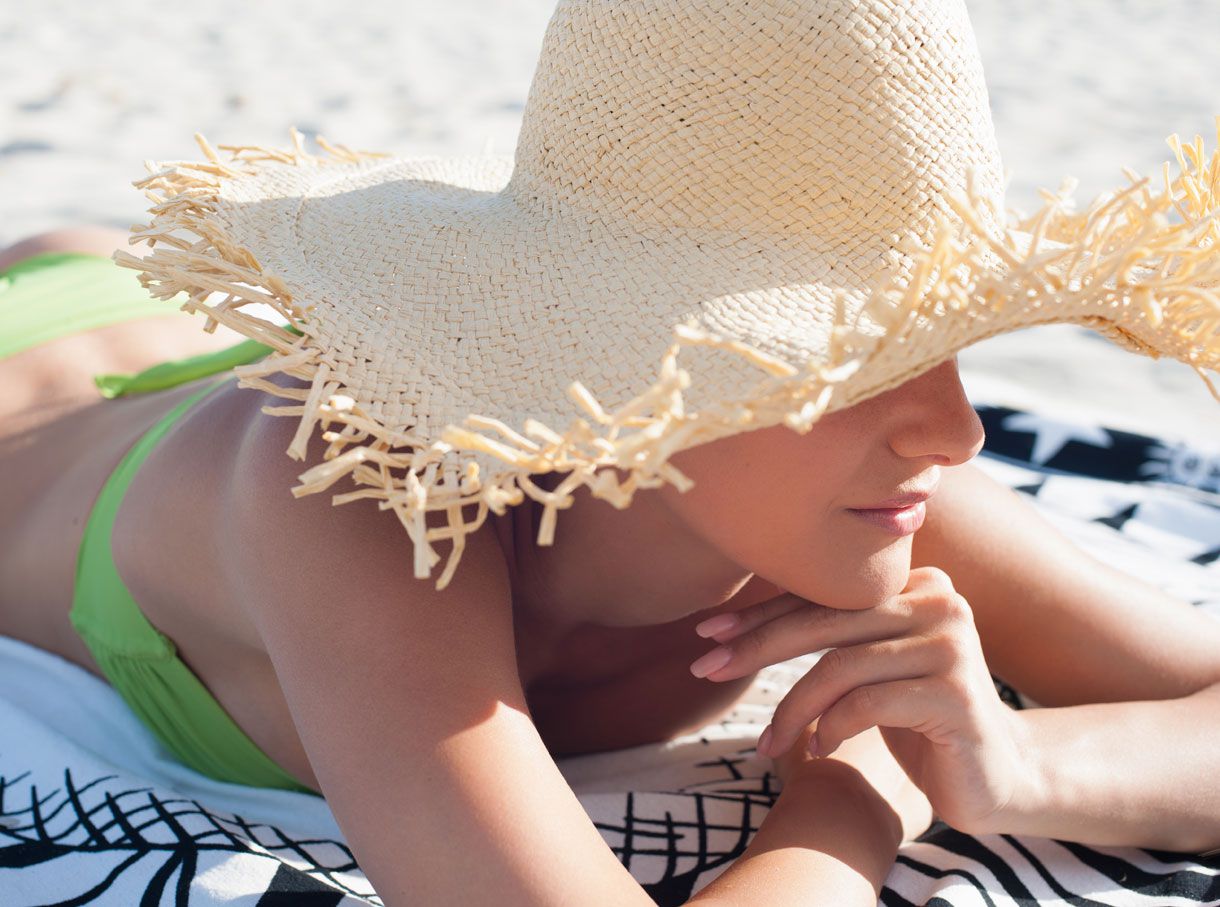As soon as upon a time, Christine Platt recollects, if somebody had described her as a “minimalist” to certainly one of her mates, they’d’ve laughed.
“Oh my gosh. I had a lot stuff!” she admits. “I wouldn’t say I used to be well-known for being a cut price shopper, however I undoubtedly had some people who would observe me on-line and say, ‘The following time you buy groceries, let me go along with you!’”
On the time, Platt was married and dealing 18 billable hours a day as a company lawyer. She was additionally elevating a daughter and sustaining a big, well-appointed dwelling within the suburbs of Washington, D.C.
Like many individuals, she shopped for bargains as a strategy to calm down and reward herself. Her dwelling was stuffed with issues she didn’t put on or use, however she didn’t give it a lot thought till she give up her job to commit herself to writing youngsters’s books full-time. Then she observed.
“I had been working nonstop since regulation college . . . and I by no means actually needed to face our consumption. However if you’re in the home all day, the husband is gone, the child is gone, you’re similar to, ‘Why do we’ve got all of those rooms? Why do we’ve got all of these items?’”
Platt got down to simplify her household’s residing area and commenced to observe some minimalism advocates on social media. Then a good greater turning level arrived: Platt and her husband determined — with nice goodwill — to separate.
As a result of she wasn’t bringing in any revenue, essentially the most wise place for her to relocate was the tiny apartment she’d purchased earlier than she was married. She went from pursuing minimalism by option to changing into a minimalist by circumstance.
She turned to her new on-line neighborhood for help. “We bonded over the irony of previously having every part but feeling empty,” she explains in her e-book The Afrominimalist’s Information to Residing With Much less. She discovered new work, paid down her debt, and furnished the apartment with cautious intention.
But, after dwelling awhile within the textbook-minimalist setting she’d created — all white partitions and impartial furnishings — Platt realized that she cherished the minimalist philosophy of residing merely, however she wasn’t so loopy concerning the minimalist aesthetic. So she determined to vary it up.
“I made a decision that if I used to be going to reside with much less, I used to be going to should do it my approach,” she says. “That meant coloration, materials, textures, and culturally significant objects that have been vital to me.”
At present, Platt shares her “journey to extra intentional residing” with 1000’s of followers on her Afrominimalist platform, providing inspiration and encouragement to assist them adapt minimalism to their very own wants and preferences. She sees it as a long-term follow, one which entails trying on the emotional patterns that set off us to overconsume.
When these now not dictate our decisions, we’re free to change into extra authentically ourselves, and our areas can actually mirror and help us.
Along with curating the Afrominimalist platform, Platt at present serves as interim director of the Antiracist Analysis and Coverage Middle at American College in Washington, D.C., the place she lives together with her daughter. She’s the writer of the profitable Ana & Andrew collection of kids’s books, which give attention to African American historical past and tradition, and he or she’s at work on a brand new collection known as Frankie at 5, concerning the younger daughter of a reporter who goals of changing into a journalist.
These are a number of the ideas she shared with us about her minimalist philosophy and follow.
Q&A With Christine Platt
Expertise Life | You’ve written that mainstream minimalism is usually alienating for marginalized communities. Why is that this?
Christine Platt | Monochrome, barren aesthetics of mainstream minimalism have led individuals to imagine that that is the one strategy to reside with much less, and it’s simply not true. I attempted to reflect these photographs, however they merely didn’t mirror my tradition, historical past, and lived experiences — the consequence didn’t really feel good. Moreover, throwing every part away and beginning over isn’t actuality for lots of people, not solely marginalized communities. Fortunately, the motion is evolving, however at one time, there was the idea that an individual may solely be a minimalist in the event that they owned a sure variety of objects. Like, in what world?
EL | What led you to create Afrominimalism?
CP | The African diaspora’s historical past contains vibrant colours, materials, and textures that aren’t essentially related to mainstream minimalism. And I’ve met minimalists throughout each race and demographic who don’t have or need monochrome decor! So, I began sharing my method and known as it Afrominimalism. As a Black lady, I’m honored that my philosophy has impressed others to reimagine minimalism for themselves.
EL | You write about how conspicuous consumption could be very American, however members of the Black neighborhood could be particularly susceptible to it.
CP | For these of us who’re the primary in our households to have wealth, there’s much less familial steering on easy methods to handle [it]. And restricted monetary literacy usually means straightforward prey. For instance, regardless that Black Individuals are the least represented and economically served inhabitants, as shoppers they command $1.3 trillion in annual shopping for energy. Advertising and marketing firms are totally conscious that tradition is an influential a part of our consumerism. We really feel a way of belonging and self-worth when we’ve got the identical issues as individuals we admire, and that is how we’re focused.
First-generation faculty graduates and six-figure-income earners usually discover themselves caught up in conspicuous consumption, particularly Black Individuals. Along with having the means to amass all of the issues we imagine characterize societal success, we additionally are likely to really feel a way of obligation to take action — for ourselves in addition to household and mates.
EL | What’s psychological possession? How does it preserve us connected to issues we now not want, use, and love?
CP | The psychology of possession — the sensation that one thing is ours or an extension of us — is rooted within the energy of contact. Once we see one thing and choose it up, strive it on, or test-drive it to determine whether or not we must always purchase it, our contact causes us to develop emotions of partial possession, which rapidly triggers the need for full possession. That’s why it’s arduous to place issues again, or why we really feel compelled to purchase sure issues. We don’t need another person to get what we’ve now deemed as ours.
Understanding the psychology of possession was a game-changer for me. I now not go to gross sales racks and contact all of the issues, as a result of I do know what’s going to occur: I’m going to need to purchase all of the issues.
EL | You suggest that each object we personal meet three standards: I would like it, I take advantage of it, I find it irresistible. You additionally say that typically we’ve got to let go of issues we love. That’s arduous!
CP | I tailored the “want, use, love” philosophy as an goal strategy to determine what ought to stay in our lives. Clearly, if we have a look at these concerns individually, we will justify conserving every part we personal. That’s why each merchandise ought to meet all three standards: you need to want, use, and find it irresistible . . . or let it go.
Love usually causes us to buy or settle for fairly issues into our lives, however we don’t want or use them. It’s OK to easily admire one thing — we don’t have to permit it to take up area in our lives. Additionally, simply as with issues of the guts, the issues we love can change over time. That’s why the extra concerns of “want” and “use” could be useful relating to decluttering.
EL | You write in your e-book that “much less is liberation.” How has this manifested in your personal life?
CP | The primary freedom got here with having order, with solely having what our household wants, makes use of, and loves. With out all of the litter, I’m much less distracted and luxuriate in our dwelling a lot! Being liberated from hours of cleansing and spending has resulted in additional time to give attention to my writing (and napping!). And, after all, there’s the monetary liberation. I’m extra cognizant of what I buy. I simply don’t spend cash the best way I used to. Residing with much less has so many liberating advantages.
EL | Why is the language we use to explain the letting-go course of so vital?
CP | I imagine that “letting go” encompasses a extra holistic method to the method. Purging usually has a unfavorable connotation due to weight-reduction plan tradition. Even the phrase “minimalism” can evoke emotions of shortage that set off loss aversion and trigger us to focus extra on what we’re shedding somewhat than what we’re gaining. For those who don’t need to change into a minimalist, then don’t! However are you able to let go of issues that now not serve you and reside with much less? Are you able to change into a extra acutely aware client? How we body our behaviors and existence issues!
This text initially appeared as “The Liberation of Much less” within the November 2021 problem of Expertise Life.







